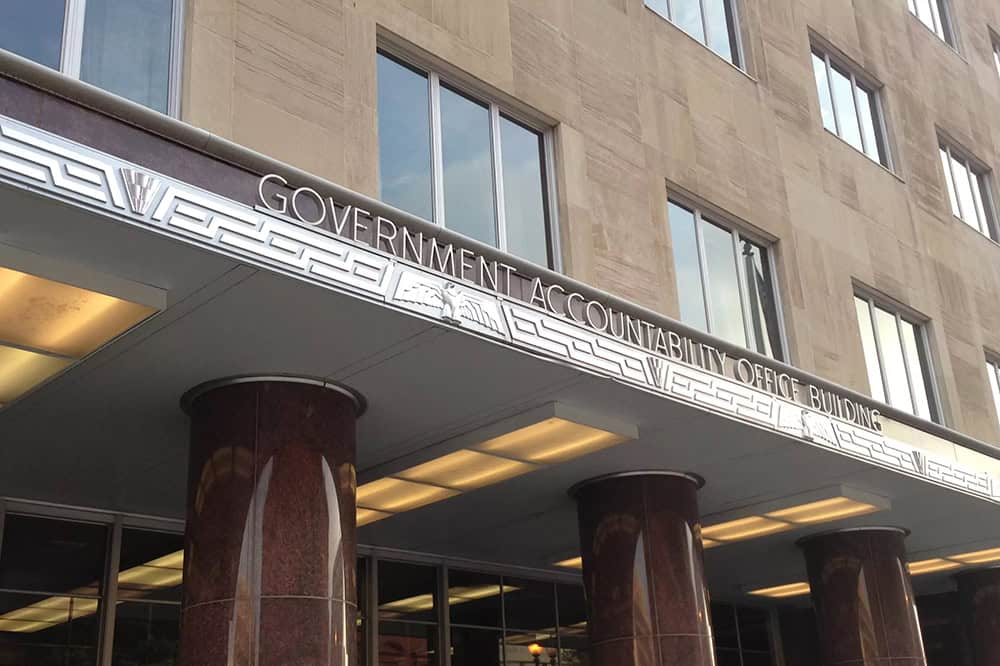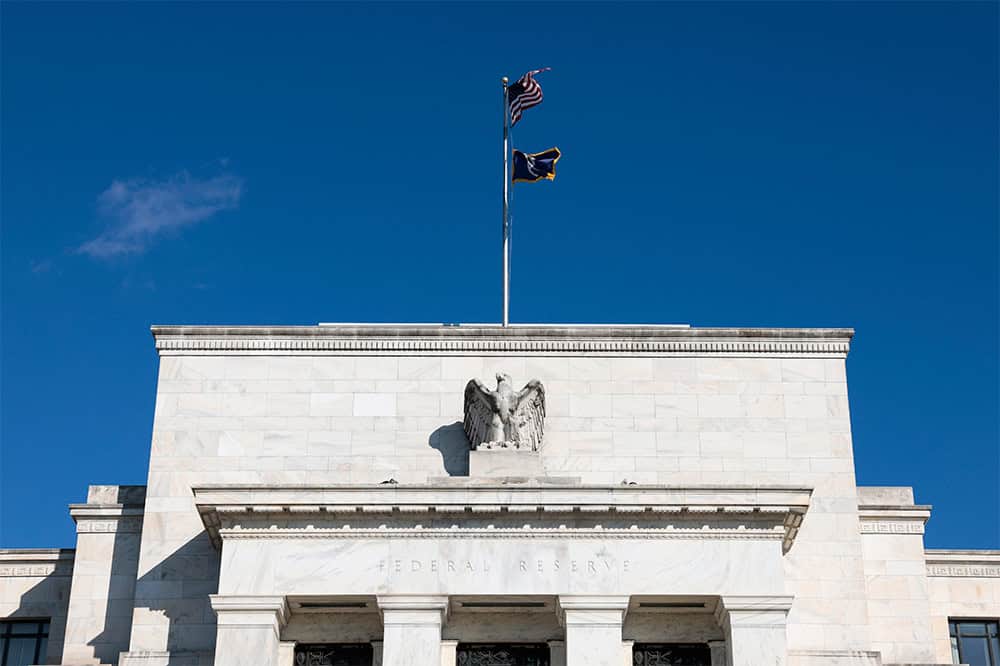New Poll: Vast Majority of US Voters want Lawmakers to Avoid Government Shutdown
Democrats and Republicans Deeply Concerned About Potential Economic Damage from a Shutdown
August Fiscal Confidence Index falls to 38, (100 is neutral)
NEW YORK (August 31, 2023) — A new Peter G. Peterson Foundation poll reveals that vast majorities of Americans across the political spectrum want lawmakers to avoid a federal shutdown. Voters are increasingly concerned about the economic damage created by political brinksmanship and the interruption of government services. In addition, the U.S. Fiscal Confidence Index fell two points this month to 38 (100 is neutral).
Nine-in-ten voters want policymakers to work together to avoid a shutdown and focus on implementing solutions to our growing national debt. Strong majorities of Americans also support the creation of a bipartisan fiscal commission to address the nation’s fiscal challenges, as has been proposed by a number of leaders from both parties in the House and Senate.
This new national survey, jointly conducted by Democratic firm Global Strategy Group and Republican firm North Star Opinion Research, finds:
- 90% of voters, including 91% of Democrats and 89% of Republicans, agree that lawmakers from both parties should work together to avoid a government shutdown and focus their efforts on finding solutions for our national debt.
- Strong majorities of voters believe a shutdown should be avoided because it harms the economy (77%) and because it distracts from America’s larger fiscal challenges (70%).
- Seven-in-ten voters are concerned that there will be a federal government shutdown because lawmakers will be unable to come to a budget agreement by the September 30 deadline.
- There is also growing support among Democratic and Republican voters for the creation of a bipartisan commission to recommend a comprehensive package of reforms to reduce the national debt. Sixty-eight percent of voters support a bipartisan fiscal commission, up five points from June. Support for a fiscal commission spans party lines, including 69% of Democrats and 67% of Republicans; Overall, only 5% of voters are opposed.
More broadly, as lawmakers prepare to return to Washington following the August recess, 80% of voters want the debt to be a top-three priority for the president and Congress, including 71% of Democrats, 78% of independents and 92% of Republicans.
“Nobody wins in a government shutdown, especially our economy and the American people,” said Michael A. Peterson, CEO of the Peterson Foundation. “Today’s new poll shows that voters feel very strongly that we must avoid the economic damage of a shutdown, and focus instead on real solutions to our nation’s fiscal challenges. A bipartisan fiscal commission has support from strong majorities in both parties, and would be an effective means of having a rational and comprehensive process to work together on reforms to stabilize the national debt. Calls from their constituents cannot be clearer that we must regain control of the budget process and strengthen our fiscal foundation for the long term.”
The Fiscal Confidence Index measures public opinion about the national debt by asking six questions in three key areas:
- CONCERN: Level of concern and views about the direction of the national debt.
- PRIORITY: How high a priority addressing the debt should be for elected leaders.
- EXPECTATIONS: Expectations about whether the debt situation will get better or worse in the next few years.
The survey results from these three areas are weighted equally and averaged to produce the Fiscal Confidence Index value. The Fiscal Confidence Index, like the Consumer Confidence Index, is indexed on a scale of 0 to 200, with a neutral midpoint of 100. A reading above 100 indicates positive sentiment. A reading below 100 indicates negative sentiment.
Fiscal Confidence Index Key Data Points:
- The August 2023 Fiscal Confidence Index value is 38. (The July value was 40. The June value was 38. The May value set a record low of 35.)
- The current Fiscal Confidence Index score for CONCERN about the debt is 30, indicating deep concern about the debt. The score for debt as a PRIORITY that leaders must address is 22, indicating that Americans want elected leaders to make addressing long-term debt a high priority. The score for EXPECTATIONS about progress on the debt is 62. The Fiscal Confidence Index is the average of these three sub-category scores.
- For a description of the complete methodology, see the Appendix below.
The Peter G. Peterson Foundation commissioned this poll by the Global Strategy Group and North Star Opinion Research to survey public opinion on the national debt. The online poll included 1,013 registered voters nationwide, surveyed between August 21, 2023 and August 23, 2023. The poll has a margin of error of +/- 3.1%. The poll examined voters’ opinions on the national debt, political leadership, and America’s fiscal and economic health.
Detailed poll results can be found online at: www.pgpf.org/FiscalConfidenceIndex.
About the Peter G. Peterson Foundation
The Peter G. Peterson Foundation is a nonprofit, nonpartisan organization that is dedicated to increasing public awareness of the nature and urgency of key fiscal challenges threatening America’s future, and to accelerating action on them. To address these challenges successfully, we work to bring Americans together to find and implement sensible, long-term solutions that transcend age, party lines and ideological divides in order to achieve real results. To learn more, please visit www.pgpf.org.
APPENDIX: Fiscal Confidence Index Methodology and Questions
- The Fiscal Confidence Index is released monthly by the Peter G. Peterson Foundation.
- The Fiscal Confidence Index value is based on six questions in three categories.
- As is done with the Consumer Confidence Index, the first step in calculating the Fiscal Confidence Index is determining the “Relative Value” for each question. This calculation is made by taking the positive response for each question and dividing it by the sum of the positive and negative responses. Each question was asked on a four-point scale, and answers were weighted according to intensity, with the strongest responses counting twice as much as the middle responses (“much” better or worse answers count twice as heavily as “somewhat” better or worse answers).
- The scores for the Concern, Priority, and Expectations categories are determined by averaging the scores derived from the two questions in each category.
- The Fiscal Confidence Index value is converted from the Relative Value to place it on a scale on which 100 indicates equal positive and negative sentiment, while values below 100 indicate negative sentiment and values above 100 indicate positive sentiment.
- The questions are as follows:
| CONCERN (30) | |||
|---|---|---|---|
| Thinking about our national debt over the last few years, would you say your level of concern has increased or decreased? ◊ Is that a lot or just a little? |
August 2023 | July 2023 | June 2023 |
| Increased a lot | 53% | 52% | 47% |
| Increased a little | 31% | 32% | 34% |
| Decreased a little | 4% | 5% | 4% |
| Decreased a lot | 2% | 1% | 2% |
| (No change) | 8% | 8% | 11% |
| (Don’t Know/Refused) | 2% | 2% | 3% |
| INCREASED (NET) | 84% | 83% | 81% |
| DECREASED (NET) | 6% | 7% | 6% |
| When it comes to addressing our national debt, would you say things in the United States are heading in the right direction or do you think things are off on the wrong track? ◊ Do you feel that way strongly or just somewhat? |
August 2023 | July 2023 | June 2023 |
| Right direction — Strongly | 6% | 8% | 7% |
| Right direction — Somewhat | 23% | 23% | 23% |
| Wrong track — Somewhat | 27% | 26% | 26% |
| Wrong track — Strongly | 42% | 40% | 38% |
| (Neither/Mixed) | * | 1% | 1% |
| (Don’t Know/Refused) | 2% | 3% | 5% |
| RIGHT DIRECTION (NET) | 29% | 31% | 29% |
| WRONG TRACK (NET) | 69% | 66% | 64% |
| PRIORITY (22) | |||
|---|---|---|---|
| Some people say that addressing the national debt should be among the president and Congress’ top 3 priorities. Do you agree or disagree? ◊ Do you feel that way strongly or just somewhat? |
August 2023 | July 2023 | June 2023 |
| Strongly agree | 52% | 54% | 49% |
| Somewhat agree | 28% | 27% | 29% |
| Somewhat disagree | 12% | 12% | 11% |
| Strongly disagree | 4% | 4% | 4% |
| (Don’t Know/Refused) | 4% | 3% | 6% |
| AGREE (NET) | 80% | 81% | 79% |
| DISAGREE (NET) | 16% | 16% | 15% |
| And when it comes to our national debt, do you think it is an issue that the president and Congress should spend more time addressing or less time addressing? ◊ Would you say a lot (more or less) time or just a little? |
August 2023 | July 2023 | June 2023 |
| A lot more time | 53% | 50% | 51% |
| A little more time | 31% | 33% | 33% |
| A little less time | 6% | 7% | 5% |
| A lot less time | 4% | 3% | 3% |
| (The same amount of time) | 4% | 4% | 3% |
| (Don’t Know/Refused) | 3% | 3% | 5% |
| MORE TIME (NET) | 84% | 83% | 84% |
| LESS TIME (NET) | 10% | 10% | 8% |
| EXPECTATIONS (62) | |||
|---|---|---|---|
| And thinking about our national debt over the next few years, do you expect the problem to get better or worse? ◊ Is that much (better or worse) or just somewhat (better or worse)? |
August 2023 | July 2023 | June 2023 |
| Much better | 4% | 7% | 5% |
| Somewhat better | 21% | 19% | 21% |
| Somewhat worse | 33% | 37% | 35% |
| Much worse | 35% | 30% | 32% |
| (No change) | 3% | 3% | 3% |
| (Don’t know/Refused) | 3% | 3% | 5% |
| BETTER (NET) | 25% | 26% | 26% |
| WORSE (NET) | 68% | 68% | 67% |
| And when it comes to our national debt, are you optimistic or pessimistic that the United States will be able to make progress on our national debt over the next few years? ◊ Would you say you are very (optimistic or pessimistic) or just somewhat? |
August 2023 | July 2023 | June 2023 |
| Very optimistic | 4% | 6% | 6% |
| Somewhat optimistic | 37% | 38% | 34% |
| Somewhat pessimistic | 34% | 35% | 38% |
| Very pessimistic | 18% | 18% | 17% |
| (Neither/Mixed) | 4% | 1% | 3% |
| (Don’t Know/Refused) | 3% | 2% | 3% |
| OPTIMISTIC (NET) | 42% | 44% | 40% |
| PESSIMISTIC (NET) | 52% | 53% | 54% |
Further Reading
How Much Can the Administration Really Save by Cutting Down on Improper Payments?
Cutting down on improper payments could increase program efficiency, bolster Americans’ confidence in their government, and safeguard taxpayer dollars.
What Is R Versus G and Why Does It Matter for the National Debt?
The combination of higher debt levels and elevated interest rates have increased the cost of federal borrowing, prompting economists to consider the sustainability of our fiscal trajectory.
High Interest Rates Left Their Mark on the Budget
When rates increase, borrowing costs rise; unfortunately, for the fiscal bottom line, that dynamic has been playing out over the past few years.


